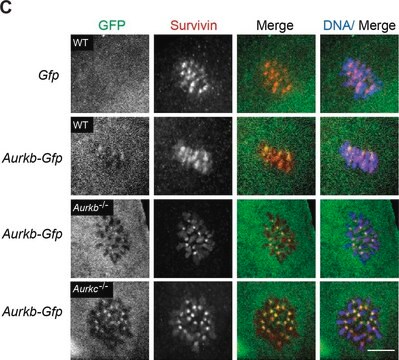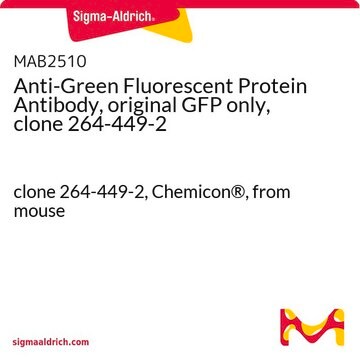SAB4301138
Anti-GFP antibody produced in rabbit
affinity isolated antibody
Synonym(s):
GFP-like chromoprotein
About This Item
Recommended Products
biological source
rabbit
Quality Level
antibody form
affinity isolated antibody
antibody product type
primary antibodies
clone
polyclonal
form
buffered aqueous solution
mol wt
27 kDa
concentration
3.2 mg/mL
technique(s)
western blot: 1:1000-1:10000 (Cell Lysate)
isotype
IgG
shipped in
wet ice
storage temp.
−20°C
target post-translational modification
unmodified
General description
Specificity
Immunogen
Application
- double immunofluorescence staining
- immunoblot analysis.
- immunoprecipitation.
Biochem/physiol Actions
Features and Benefits
Physical form
Disclaimer
Not finding the right product?
Try our Product Selector Tool.
Storage Class Code
10 - Combustible liquids
WGK
WGK 1
Flash Point(F)
Not applicable
Flash Point(C)
Not applicable
Certificates of Analysis (COA)
Search for Certificates of Analysis (COA) by entering the products Lot/Batch Number. Lot and Batch Numbers can be found on a product’s label following the words ‘Lot’ or ‘Batch’.
Already Own This Product?
Find documentation for the products that you have recently purchased in the Document Library.
Customers Also Viewed
Our team of scientists has experience in all areas of research including Life Science, Material Science, Chemical Synthesis, Chromatography, Analytical and many others.
Contact Technical Service














